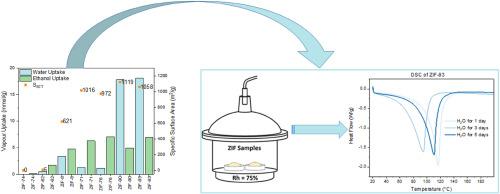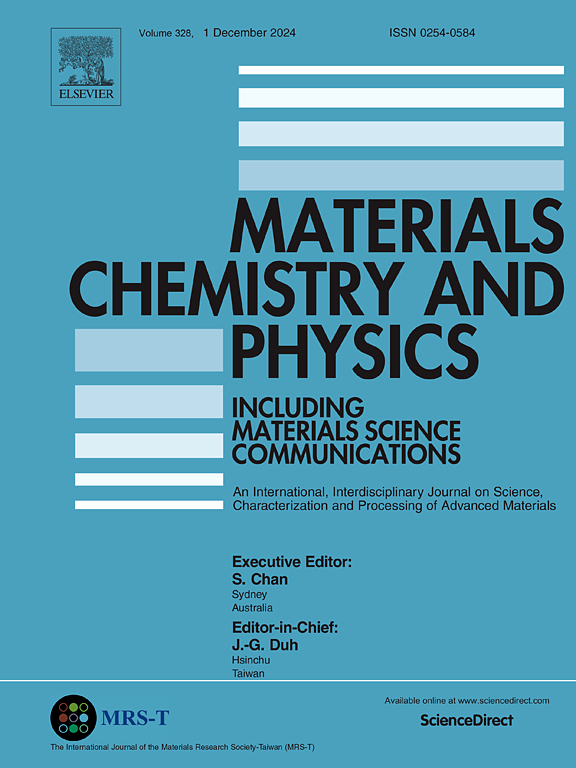Assessing the heat storage potential of zeolitic imidazolate frameworks (ZIFs) using water and ethanol as working fluids
IF 4.3
3区 材料科学
Q2 MATERIALS SCIENCE, MULTIDISCIPLINARY
引用次数: 0
Abstract
Zeolitic imidazolate frameworks (ZIFs) are comprised of transition metal cations such as Zn(II) and imidazolate-based ligands. Due to their inherent properties, including large surface areas, well-defined and stable porous structure, ZIFs hold significant promise for adsorption applications. Sorption-based heat storage and transformation with porous materials and water as working fluid has been recently recognized as one of the most promising approaches to address more efficient use of energy. In this study, we examined seven different ZIFs (ZIF-8, ZIF-62, ZIF-71, ZIF-74, ZIF-76, ZIF-90 and ZIF-93) and their heat storage potential using water and ethanol as working fluids. It has been demonstrated that storage performance is governed by several factors, including pore dimensions, type and distribution of functional groups on imidazolate ligands, chemical stability of the framework as well as the type of the working fluid. Ethanol sorption data demonstrates inflection points in sorption isotherms at lower relative pressures, enhancement of uptakes for ZIFs with hydrophobic properties, but lower desorption enthalpies if compared to water sorption. We found that ZIF-93 was the most promising material for both working fluids.

以水和乙醇为工质评价沸石咪唑盐框架(ZIFs)的储热潜力
沸石咪唑盐框架(ZIFs)是由过渡金属阳离子如Zn(II)和咪唑盐基配体组成的。由于其固有的特性,包括大的表面积,良好定义和稳定的多孔结构,zif在吸附应用中具有重要的前景。以多孔材料和水作为工作流体的吸附储热和转化技术最近被认为是解决更有效利用能源的最有前途的方法之一。在这项研究中,我们研究了7种不同的zif (ZIF-8、ZIF-62、ZIF-71、ZIF-74、ZIF-76、ZIF-90和ZIF-93)以及它们在水和乙醇作为工质时的储热潜力。研究表明,咪唑酸配体的孔隙尺寸、官能团的类型和分布、骨架的化学稳定性以及工作流体的类型等因素决定了骨架的储存性能。乙醇吸附数据表明,在较低的相对压力下,吸附等温线出现拐点,具有疏水性的zif吸附增强,但与水吸附相比,解吸焓较低。我们发现ZIF-93是两种工质中最有前途的材料。
本文章由计算机程序翻译,如有差异,请以英文原文为准。
求助全文
约1分钟内获得全文
求助全文
来源期刊

Materials Chemistry and Physics
工程技术-材料科学:综合
CiteScore
8.70
自引率
4.30%
发文量
1515
审稿时长
69 days
期刊介绍:
Materials Chemistry and Physics is devoted to short communications, full-length research papers and feature articles on interrelationships among structure, properties, processing and performance of materials. The Editors welcome manuscripts on thin films, surface and interface science, materials degradation and reliability, metallurgy, semiconductors and optoelectronic materials, fine ceramics, magnetics, superconductors, specialty polymers, nano-materials and composite materials.
 求助内容:
求助内容: 应助结果提醒方式:
应助结果提醒方式:


